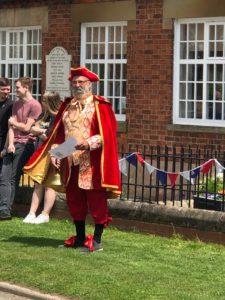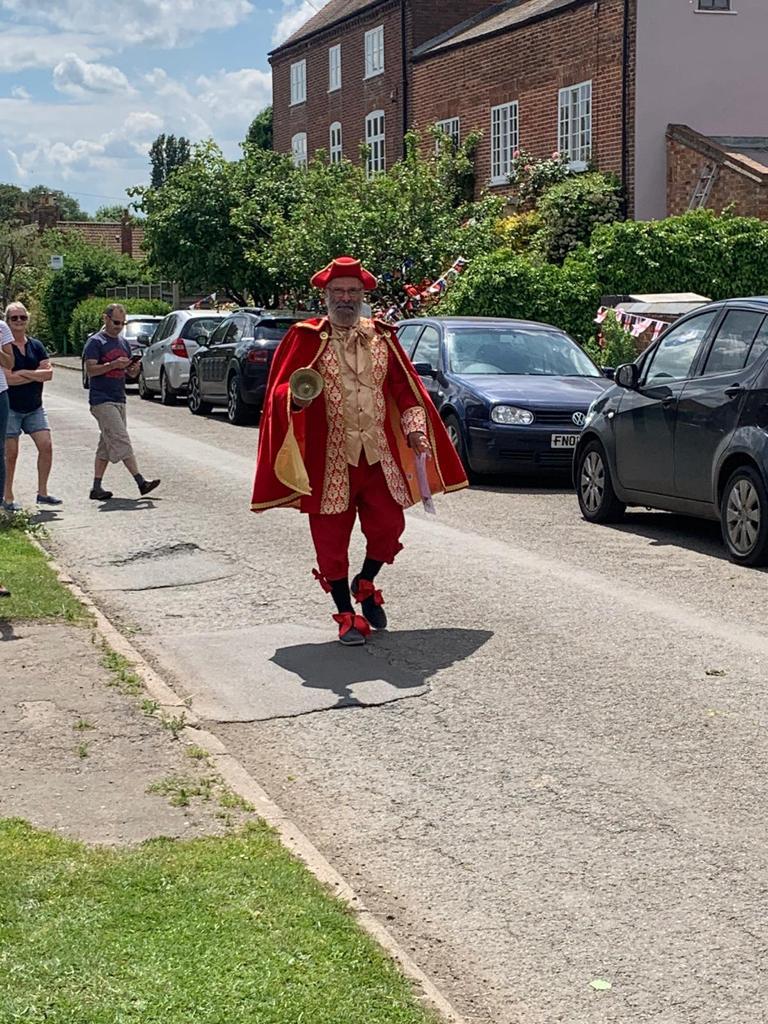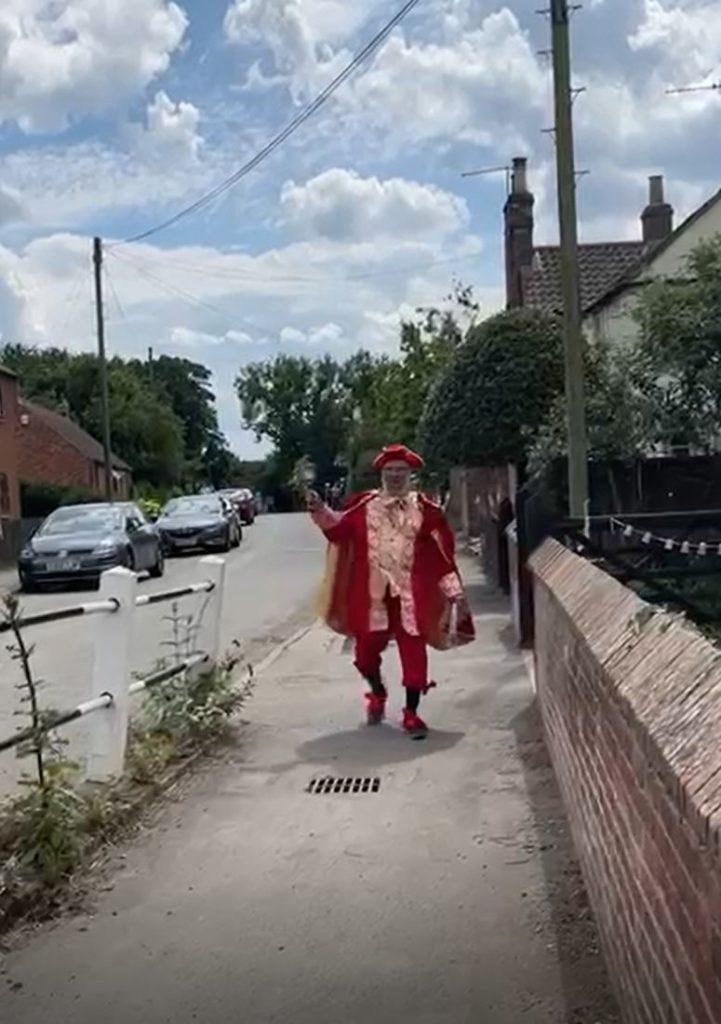
Please meet Mr Timothy McEwen, Town Crier for Hickling & proclaiming the Queen’s Platinum Jubilee.
A community’s Town Crier is a most important person:
The Queen’s Platinum Jubilee Proclamation:
Oyez Oyez oyez
Today in our nation – and throughout the Commonwealth we are celebrating our Glorious Queen’s Platinum Jubilee
Elizabeth – the second of that name our most beloved Sovereign and Head of the Commonwealth for seventy years
How apt that this should be the Platinum anniversary of her accession – Platinum that most noble of metals, more precious even than gold.
And so it is in honour of this unique occasion that beacons will be lit this evening throughout the United Kingdom, the Channel Islands, the Isle of Man and the UK Overseas Territories – and in all the Capital Cities of the Commonwealth.
Let it be known. In proclaiming this tribute to Her Majesty the Queen on her Platinum Jubilee that we are one nation and one Commonwealth.
God Save The Queen.
Videos:
Photographs: if you would like good quality versions of any of these photographs, please contact us.
The Town Crier
by Ellen Castelow (Historic UK)
“”Oyez, oyez, oyez!”
“This is the call or cry of the town crier, now usually only heard at ceremonials, fetes and local events. It would however have been a common cry on the streets of medieval England.
‘“Oyez’ (pronounced ‘oh yay’) comes from the French ouïr (‘to listen’) and means “Hear ye”. The town crier would begin his cry with these words, accompanied by the ringing of a large hand bell to attract attention. It was the job of the crier or bellman to inform the townspeople of the latest news, proclamations, bylaws and any other important information, as at this time most folk were illiterate and could not read.
“The cry would then end with the words, ‘God save the King’ or ‘God save the Queen’.
“Having read out his message, the town crier would then attach it to the door post of the local inn, so ‘posting a notice’, the reason why newspapers are often called ‘The Post’.
“Proclaiming the news was not however their only role: indeed, their original role was to patrol the streets after dark, acting as peace keepers, arresting miscreants and taking them to the stocks for punishment and posting their crimes to show why they were there. It was also his job to make sure fires were damped down for the night after the curfew bell.
“It was also the role of the town crier at public hangings to read out why the person was being hanged, and then to help cut him or her down.
“The key requirements of the role were the ability to read, a loud voice and an air of authority. Bellmen would be paid for each proclamation they made: in the 18th century the rate was between 2d and 4d per cry.
“Town criers were protected by law. Anything they did was done in the name of the monarch, therefore to harm a town crier was an act of treason. This was a necessary safeguard as the town criers often had to announce unwelcome news such as tax increases!
“The town crier or bellman can be traced back at least to medieval times: two bellmen appear in the Bayeaux Tapestry, which depicts the invasion of England by William of Normandy and the Battle of Hastings in 1066.
“Today’s town criers are dressed to impress in a red and gold coat, breeches, boots and a tricorne hat, a tradition that dates back to the 18th century. You can find them at local fetes, events and at town crier competitions.
“Chester is the only place in Britain where you can hear the town crier regularly. You will find the crier at High Cross at midday (11am on race days) every Tuesday to Saturday between June and August. Proclamations have been read at the High Cross in Chester since the Middle Ages.
“Did you know, when a group of town criers get together, for example for a competition, it is known as a ‘a bellow of criers’?”
(Historic UK; https://www.historic-uk.com/CultureUK/The-Town-Crier/)
Photographs & Galleries:
- Hickling & Hickling Pastures: the Bunting & Jubilee Decorations
- Thursday: Town Crier’s Proclamation
- Thursday: The Beacon on the Hickling Standard
- Sunday: Parish Breakfast in the Village Hall
- Sunday: The Bellringers of St. Luke’s Parish Church ring in the Jubilee (at midday)
- Sunday: Parish Picnic (competitions, games & sports) at The Plough Inn
It is never too late to send us your photos and stories of the weekend – we look forward to hearing from you!












